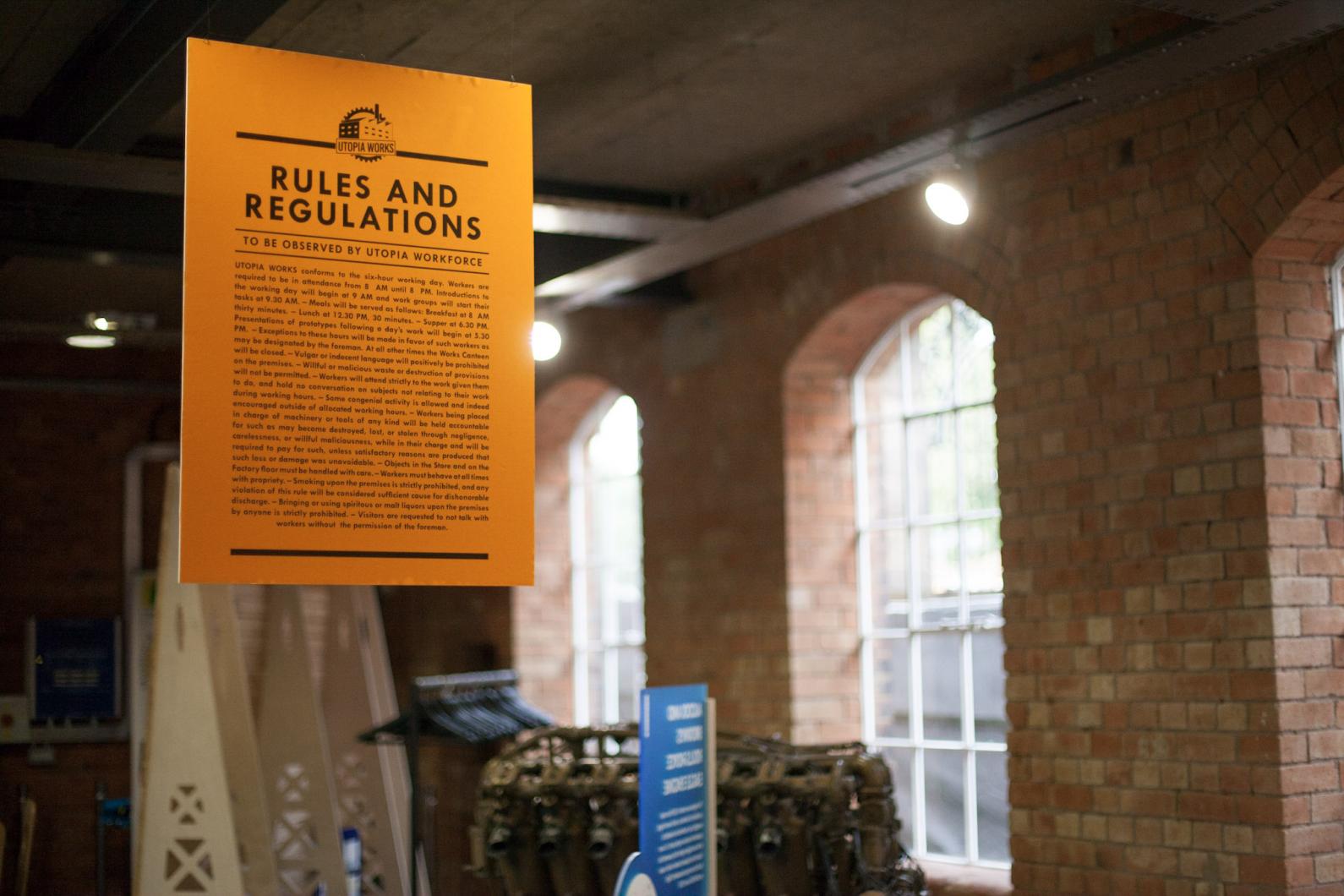By Tom Beesley
Arriving for an 8.30am start at The Silk Mill in Derby with the prospect of a full days graft ahead felt a little daunting, after all, the mill stands on the site of the world’s first factory and therefore the birth place of the factory system. Could we expect twelve hours of repetitive back-breaking toil, amid deafening machinery with few breaks?
Fortunately not, for today we were welcomed to Utopia Works, a working day as envisaged by Sir Thomas More in his book Utopia published five hundred years ago this year – six hours of work with a two hour lunch break and plenty of time for conviviality (unless you were a slave – More allowed two per household).
I joined one of several working groups with six others drawn from the wide network of associates of the project as we grappled with the tasks set for us. The Stories of Change team had put together a series of workshops challenging us to work together to explore our attitudes towards energy use – its generation, distribution and conservation. We created pithy slogans and transferred these onto letterpress printed pamphlets, we put our heads together (quite literally) in a photo opportunity to highlight the energy efficiency of the Human brain (less than 23 Watts of power!) and we toured the Mill’s stores finding objects that conveyed the attitudes to energy use of previous generations.
I have only recently become involved with Stories of Change, having joined Julia, Renata and the Future Works students in Sheffield to explore themes around making, automation and resource use. I am currently undertaking practice based PhD Fine Art research at The University of Leeds entitled ‘Art, the Architectonic and Functionality’. My practice evolves from the appropriation of the everyday, the discarded and the found through processes of modification and re-purposing toward assembly and construction. These sculptural installations will often combine the found object with components produced using highly sophisticated technologies of production as I seek to reflect on the misuse of resources and the potential to re-engineer our manufacturing capabilities to address more pressing social and environmental issues. My work focuses on how visual art can address and engage with the new challenges facing society, particularly those concerning migration, precarity and climate change, through the interrogation of use, disuse and reuse. I hope to develop a body of work in response to the Future Works/ Stories of Change programme that will be exhibited in Sheffield in the Autumn.
Meanwhile back at the Mill everyone comes back together again at the end of the afternoon, as all the groups have created prototypes, proposals and performances to share their thoughts. There is a truly amazing array of presentations involving music, canaries, fun fairs, poetry and puppets. Perhaps the overriding theme that emerges from the day is the need for us all to be made more aware of the connection between energy creation and its use, unlike previous generations we have become disconnected from the physical realities of power generation. As anyone who has ever peddled a stationary bike in order to recharge their phone battery will attest, having to work hard for something tends to make you value it a great deal more.
View the original post and see more images from the day on the Utopia 500 website.
Post by Tom Beesley
